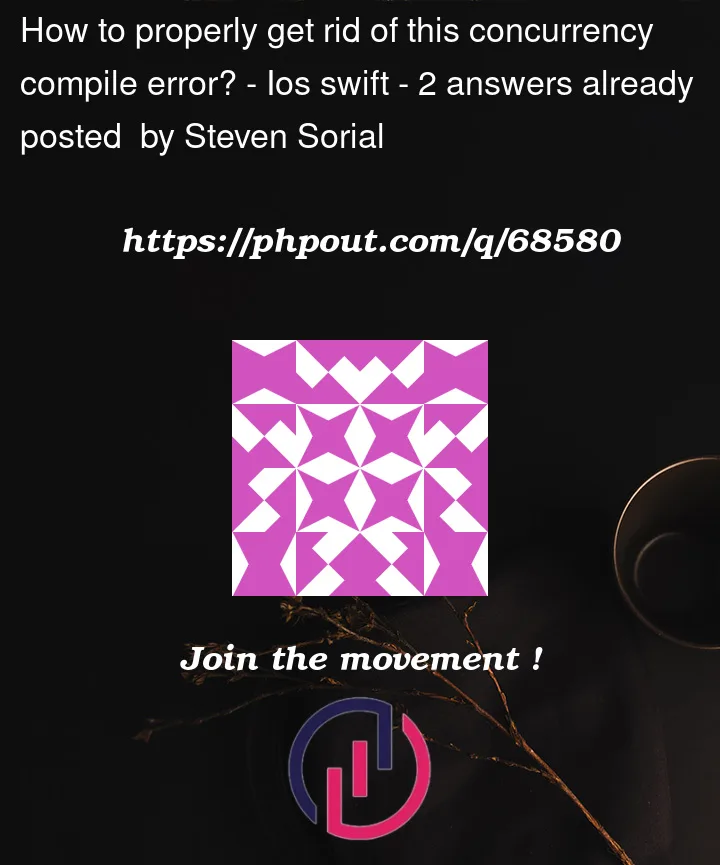@MainActor
class A {}
class VC: UIViewController {
let foo: A
init() {
self.foo = A() // Error: Call to main actor-isolated initializer 'init()' in a synchronous nonisolated context
super.init(nibName: nil, bundle: nil)
}
@MainActor
init() {
self.foo = A() // Compiles
super.init(nibName: nil, bundle: nil)
}
init(_ void: Void = ()) {
self.foo = A() // Compiles
super.init(nibName: nil, bundle: nil)
}
}
I get that A() should be called on a main-actor initializer, but why the first initializer doesn’t inherit the @MainActor from UIViewController? and why the Void parameter gets rid of the error (even with -warn-concurrency)?
Note: if I annotate VC with @MainActor, I get the same error for the super.init in the first initializer, and the third initializer still works.




2
Answers
@MainActorlimits all methods and attributes from being assessable from the main thread in the class A.let foo: Ais not the class A it an instance that stores a reference to the class A, you have done nothing to make setting foo thread safe. One of theinitofVCis setup to only be executed in the main thread only, where foo is set, but another can be called by any thread and set foo as well.Edit: Some more info I thought you might find useful
If your sole goal is thread safety, then using MainActor is not a good method, it means only the thread associated with GUI interaction can access your class, which could block some actual code that has to run in the main thread from executing, for just thread safety you are probable better of using actors, they work like classes, but only one thread can be in them at one time, they can be any thread, and different methods can be access by different threads a different times, but only one will be in but actor at a time.
You can also solve the problem by adding an initializer and marking it
nonisolated.